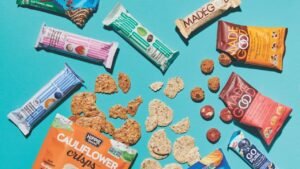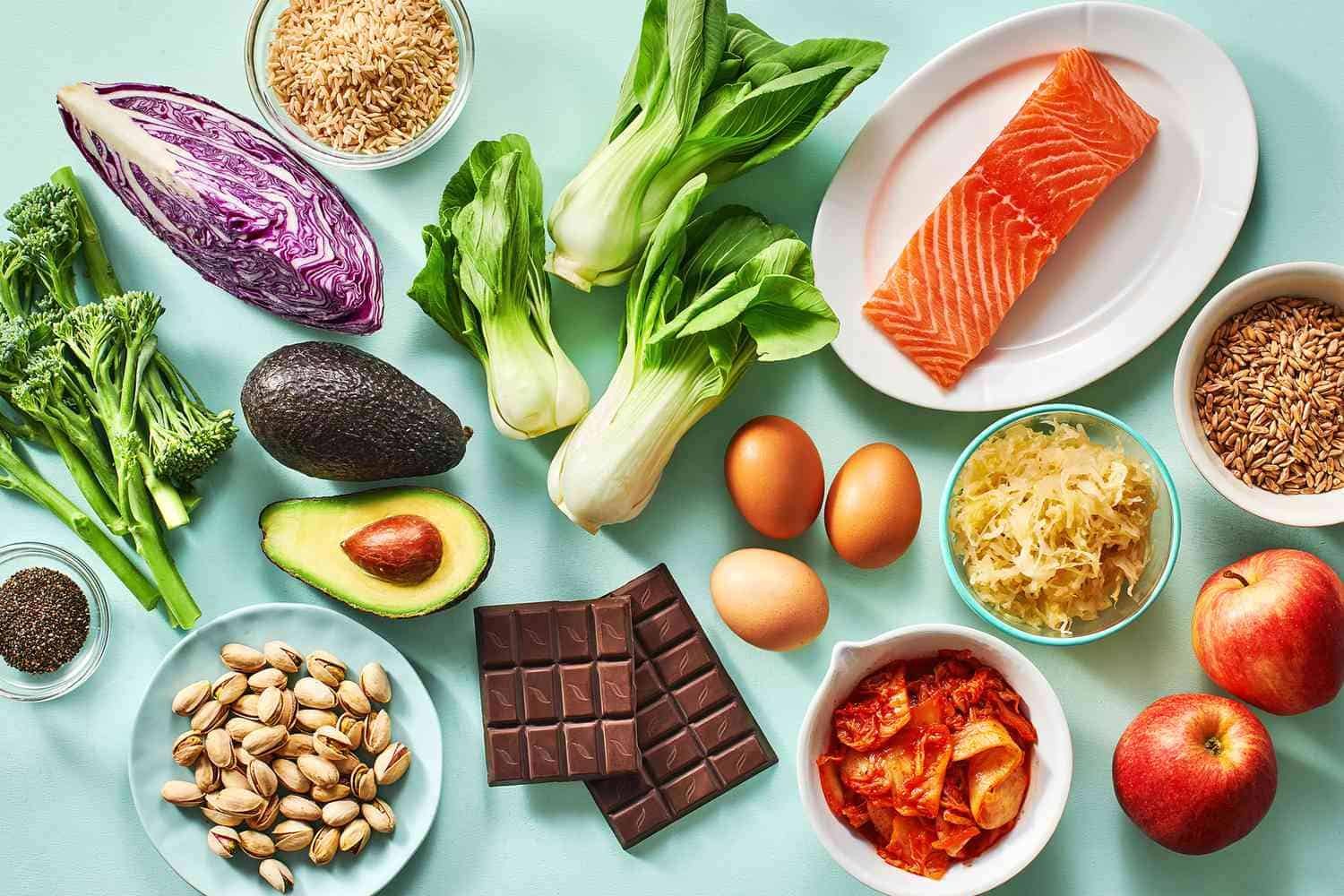7 Foods to Avoid for a Healthier Diet Plan
Maintaining a healthy diet is not just about the foods you should eat; it’s also about avoiding the wrong ones. Many seemingly harmless foods can significantly derail your health goals, whether you’re aiming to lose weight, improve energy levels, or boost your overall well-being. Some of these foods may seem convenient, satisfying, or even healthy on the surface, but they often contain hidden ingredients or unhealthy components that can sabotage your progress.
Here’s a breakdown of seven foods you should consider avoiding (or at least minimizing) to maintain a healthier diet plan:
1. Sugary Beverages
Sugary drinks, including sodas, energy drinks, and even fruit juices, are some of the most harmful products in the modern diet. They are packed with added sugars that offer little to no nutritional value, causing rapid spikes in blood sugar levels.
Why They’re Harmful:
- High sugar content contributes to weight gain, as these beverages are loaded with calories but do not fill you up like solid foods do.
- Regular consumption of sugary drinks can lead to insulin resistance, a precursor to type 2 diabetes.
- They increase the risk of cardiovascular diseases, fatty liver disease, and metabolic syndrome.
Healthy Alternatives:
- Water, herbal teas, and infused water with natural fruits.
- Unsweetened iced tea or black coffee.
2. Processed Meats
Processed meats such as sausages, hot dogs, bacon, ham, and deli meats are preserved through smoking, curing, or adding chemical preservatives. While these foods are convenient, they are packed with sodium, saturated fats, and nitrates, which can increase your risk of serious health issues.
Why They’re Harmful:
- Processed meats have been linked to an increased risk of heart disease, certain cancers (especially colorectal cancer), and diabetes.
- They contain large amounts of sodium, which contributes to high blood pressure.
- Preservatives like nitrates can form harmful compounds during digestion that increase cancer risk.
Healthy Alternatives:
- Opt for fresh, unprocessed meat like chicken, turkey, or fish.
- Consider plant-based proteins such as beans, lentils, tofu, or tempeh for a healthier, protein-rich alternative.
3. Refined Grains

Refined grains, such as white bread, white rice, and most commercial baked goods, are stripped of their fiber and nutrients during processing. While they may be a staple in many diets, refined grains have a high glycemic index, leading to rapid spikes and crashes in blood sugar levels.
Why They’re Harmful:
- These grains are quickly broken down into sugar in the bloodstream, leading to weight gain and increased fat storage.
- Refined grains lack the fiber found in whole grains, which is essential for healthy digestion and stabilizing blood sugar levels.
- Diets high in refined grains are linked to an increased risk of obesity, type 2 diabetes, and heart disease.
Healthy Alternatives:
- Choose whole grains like brown rice, quinoa, barley, and whole-wheat bread.
- Oats and whole-grain pasta are also good options for adding fiber to your diet.
4. Trans Fats
Trans fats are artificial fats created by adding hydrogen to liquid vegetable oils, which makes them solid at room temperature. These fats are often found in fried foods, baked goods, margarine, and processed snacks.
Why They’re Harmful:
- Trans fats raise your bad (LDL) cholesterol levels while lowering your good (HDL) cholesterol, leading to an increased risk of heart disease.
- Consuming trans fats is also linked to inflammation, which plays a role in the development of chronic diseases such as diabetes and cancer.
- Regular consumption can lead to insulin resistance and contribute to obesity.
Healthy Alternatives:
- Choose foods with natural, healthy fats like olive oil, avocados, nuts, and seeds.
- Look for products that list “zero trans fats” or check the ingredient list for “partially hydrogenated oils.”
5. Packaged Snack Foods

Chips, crackers, cookies, and other pre-packaged snack foods are not only addictive but also loaded with unhealthy ingredients such as trans fats, added sugars, and high levels of sodium. These snacks provide empty calories without any real nutritional benefit.
Why They’re Harmful:
- Many packaged snacks are high in unhealthy fats and sugars, which contribute to weight gain and cravings.
- These foods often contain artificial flavors, colors, and preservatives that may have negative effects on your health.
- Sodium levels in these products are high, which can lead to hypertension and water retention.
Healthy Alternatives:
- Snack on whole foods like fruits, vegetables with hummus, nuts, or seeds.
- Make your own healthy snacks at home, like air-popped popcorn, homemade energy bars, or roasted chickpeas.
6. Artificial Sweeteners
Artificial sweeteners like aspartame, sucralose, and saccharin are commonly used in diet sodas, sugar-free snacks, and low-calorie desserts. While they are often marketed as healthier alternatives to sugar, they can have negative effects on your health and weight.
Why They’re Harmful:
- Studies suggest that artificial sweeteners can disrupt gut bacteria, which may contribute to metabolic disorders and weight gain.
- They may also increase cravings for sweet, high-calorie foods, leading to overeating.
- Long-term consumption of artificial sweeteners has been linked to an increased risk of certain cancers and neurological issues.
Healthy Alternatives:
- Use natural sweeteners like stevia, monk fruit, or small amounts of honey and maple syrup.
- Reduce your overall consumption of sweetened foods and beverages by training your palate to enjoy less sweetness over time.
7. Fast Food and Deep-Fried Foods

Fast food items, especially those that are deep-fried, are typically high in unhealthy fats, sodium, and refined carbohydrates. Burgers, fries, fried chicken, and other fast food staples are convenient but can wreak havoc on your health when consumed regularly.
Why They’re Harmful:
- These foods are often fried in oils high in trans fats, increasing your risk of heart disease.
- High levels of sodium in fast foods can cause bloating, water retention, and high blood pressure.
- Consuming deep-fried foods frequently is linked to obesity, digestive issues, and an increased risk of type 2 diabetes.
Healthy Alternatives:
- Prepare meals at home using healthier cooking methods like grilling, baking, or steaming.
- Opt for homemade versions of your favorite fast food items using whole, nutrient-dense ingredients.
Additional Tips for Avoiding Unhealthy Foods
- Read Labels: One of the most effective ways to avoid unhealthy foods is to read food labels carefully. Look out for hidden sugars, unhealthy fats, and artificial additives.
- Cook at Home: By cooking meals at home, you have complete control over the ingredients and can ensure that your meals are healthy, balanced, and free from harmful additives.
- Plan Your Meals: Planning your meals ahead of time can prevent you from grabbing unhealthy convenience foods when you’re hungry or in a rush.
- Be Mindful of Portions: Even healthy foods can contribute to weight gain when consumed in excess. Be mindful of portion sizes to avoid overeating.
Conclusion
Achieving and maintaining a healthier diet doesn’t just involve eating the right foods—it also means avoiding the wrong ones. Sugary beverages, processed meats, refined grains, trans fats, packaged snacks, artificial sweeteners, and fast foods can sabotage your health goals if consumed regularly. By eliminating or reducing these items from your diet and replacing them with whole, nutrient-dense alternatives, you can improve your energy levels, manage your weight, and reduce the risk of chronic diseases.





